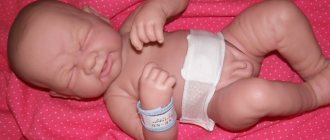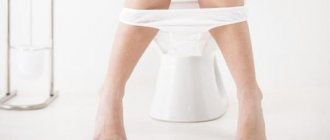13 Replies
Get a urine test and go to a urologist. Perhaps the urethra is inflamed and it hurts him to pee.
Can't pee? How old is the boy? Can't pee in diaper? In the pot? To the bath?
Oh, he might be in pain... he should see a pediatrician first
Anything could be from cystitis to phimosis... See a doctor urgently.
As I understand it, not every urination is like this, it just happens like that? My daughter has the same thing, she yells that she doesn’t want to pee and pees. Well, not every time, but it happens. It's something psychological
First, take a general urine test. There may be inflammation
General urine test and the result (any) to the urologist
If you think this is a psychological barrier, then maybe our trick will help you. Mine is 2 years old. Sometimes you need to quickly sign and leave, for example, but he’s not in the mood. Then he and I turn on the water, I say “pisss”, and then he “piisss”. For him it’s a game, he’s surprised how his pussy obeys)
But I would get tested first. Although I noticed capriciousness in the elders before this. They understand that something is wrong and what is unclear.
We also had, when there was an infection, you should see a urologist
You must be logged in to post a comment.
- Breast-feeding
- Children: health and development and education
- Home and life
- Conception, pregnancy and childbirth
- Health
- Health, development and education of children
- beauty
- Relationships, love, family
- Psychology
- Trips
- Work and education
- Hobbies and entertainment
- Shopping
Materials on the development and upbringing of children
Riddles, fairy tales, poems, fables and songs for children
- Magazine Subsections Tips
- Informative
- For the mood
- With your own hands
- Puzzles
I am happy MAMA - a community of happy mothers. We try to bring you joy and benefit every day. Love and be loved!
When using site materials, you must have an active link to the page of the original post Site Map
Fright
Does your baby cry before peeing? The first and completely normal reason is banal fear. The thing is that young children do not yet understand what is happening to their body. Therefore, any changes cause panic.
Especially when it comes to urination. This process is also accompanied by discomfort. During the period of urination, small children begin to cry. But, as a rule, after it the kids smile again. Or they just calm down. Over time, this phenomenon will pass. You just need to wait, don’t panic and don’t take your newborn to the doctor.
What to do if a child cannot pee, girl or boy
Many parents face problems with urination in their children. In medical practice, disruption of normal urine output is classified as difficulty urinating, or strangury. Most often, girls suffer from this unpleasant pathology. This is explained by the anatomical features of the structure of their urinary system, its functioning and close connection with the reproductive organs.
The child wants to go to the toilet, but cannot pee
Synechia
But the next problem concerns only girls. If at 1 month (or older, but not much) the baby begins to cry when urinating, you need to take a closer look at her genitals. The fact is that a pathology such as synechia cannot be ruled out. This term describes the phenomenon in which the labia grow together. This brings discomfort.
Synechia requires special treatment. After all, such diseases are anatomical deviations. They are usually corrected surgically. Therefore, the baby needs to be taken to a pediatric gynecologist, and then to a surgeon. Crying during urination will disappear only after the operation. The problem will be eliminated - there will be no unnecessary sounds and disturbances.
How often should a child write?
Attentive parents always care not only about their baby’s diet, but also about the future fate of the products consumed. More specifically, about urination, because the frequency of trips to the toilet or its absence may indicate an early stage of the development of certain diseases.
Often young mothers worry if the baby has even minor problems. Anxiety visits parents if the baby does not pee at night, or the newborn has not written much during the day.
In the first days of their lives, babies pee very little, so doctors often have to explain to young mothers why a newborn does not pee for long periods of time. On the first day, infants urinate on average 2-3 times in 24 hours, this is considered normal.
Almost a newborn baby does not pee at night. On the second or third day, infants begin to go to the toilet 20 to 25 times a day.
After six months, the number of urinations within 24 hours in an infant varies from 15 to 16 times. In a year, it is considered normal if a child urinates 10 to 12 times per day. By the age of five, urination is reduced to 7-9 times a day. Based on statistics, if a baby does not pee often enough from the second day of life, then in this case he needs the help of a specialist.
PLANTING AND GV. WHY DOES A CHILD “PISS” WHEN FEEDING?
“The baby is 3 weeks old. This problem appeared just a couple of days ago.
He began to behave very restlessly at the breast. Looks for a nipple, gets it, sucks for 3 seconds, lets go, starts screaming, squirming, fussing. I give him the breast again, history repeats itself. He only calms down when I lift him into a vertical position so that he burps... I don’t even know what’s wrong. Maybe there's something wrong with the milk. Or colic... I also began to sleep less and more restlessly. It’s difficult to put her to bed at night... Even when she falls asleep on her chest, she turns around and cries...”
Mothers often turn to lactation consultants with similar questions. One of the most popular: “the baby is very worried at the breast - is there something wrong with the milk?”
In response to clarifying questions about diapers and the offer to drop off the child, mothers most often wonder what this has to do with it, and sometimes even get angry.
We tried to write as briefly as possible exactly what this has to do with it.
What is planting?
This is a way to help your child relax and do toilet chores. The point is that a child, like adults, feels the urge to “go to the toilet,” although he does not yet know what it is and how to cope with it.
Everyone knows the feeling of a full bladder, and it's not a pleasant one. Planting is aimed primarily at making this process easier for the child, relieving him of prolonged discomfort and teaching him to feel and respond to signals from his own body. The term itself is not very good, because it is rather not “planting” on a potty, but “hanging” the butt from the hands of an adult - but, alas, it has already taken root.
For what?
My baby started screaming about half an hour to an hour after each feeding. And then he could scream continuously for 30-40 minutes. It all ended either with me feeding him again, or with him falling asleep from fatigue.
Many children become anxious when they feel the urge to go to the toilet. And since sucking simultaneously stimulates all excretory processes, most often they experience this desire a few minutes after the start of feeding. At the same time, they begin to spin and fidget, especially characteristic - pulling the nipple or twisting their head without letting go of the breast, then letting go of it and immediately grabbing it again, and so on in a circle many, many times.
You can deal with this in two ways: you can shift the baby from one breast to the other many, many times (the change in position is distracting, and he will feed normally for some time), or you can gradually accustom him and yourself to recognize such signals: then he will After some time, he will learn to react to them quickly, and instead of painful tens of minutes of spinning on his chest with breaks to yell, it will take a few seconds to pee and continue to feed calmly.
Very often this is what is mistaken for colic. True colic is several hours of whining and crying with acute attacks of several minutes, often at the same time of day. But “distributed” sobs throughout the day, with certain intervals between or associated with feeding, almost always turn out to be a desire to pee.
How?
We need pictures here. The physiological position for relaxing the pelvic muscles, in which it is easiest to empty the bladder and bowels, is a squatting position, or sitting with your knees higher than your butt. Children in the first months of life are not capable of sitting, but the comfortable position is the same - therefore, the legs are brought into this position by the mother’s hands. The same position remains the same for children who can sit and walk.
How to understand that this is why he/she is worried?
Try planting! If you do this regularly, you will gradually begin to notice exactly how the child shows concern on this topic.
A baby of the first 3-4 months has only physiological needs: air, water, food, sleep, physiological comfort (including a sense of security), excretion (emptying and urinating). He has air; water, food, sleep and the lion's share of bodily comfort are provided by suckling; but excretion is greatly simplified by planting.
In short, if the child has any anxiety, you can follow this scheme: Pick him up. Give breast. Drop off. Try to distract from the cause of concern (and further in a circle).
If one point does not help, move on to the next one. If all else fails, you can try to distract from the cause of the anxiety - this includes all motion sickness, rattles, conversations and songs, white noise, soothing herbs, swaddling and all other advice from good relatives.
What should I do if I decide that I want to drop off my child now?
— Expose the child’s bottom
— Take him under the knees in a landing position, with or without breasts
— Hold in this position over something (over a basin, sink, bathtub, spread out diaper, etc.) for one to two minutes (in the first days you can hold it a little longer, up to 3-5 minutes)
You can say something like “psss-psss-psss”, you can turn on white noise or turn on the water, you can lightly pat your crotch, hinting at which part of the body you need to focus on. This will help the child connect your hinting action with his feelings, and then after a couple of weeks he will begin to quickly understand what is happening and how to react.
And what should happen?
In this position, it is easier for children to: - fart (goodbye, gas tubes!), - pee, - poop.
The processes are arranged in order of increasing complexity for the child (and at the same time the visibility of the result for you).
For some time, the child may continue to fidget and fidget: the discomfort continues, and the baby still does not understand which muscles to relax. As a rule, the bladder empties when he stops fidgeting, becomes quiet and relaxes (or, conversely, begins to strain if he wants to poop).
After everything, the child usually either calms down or is put to the breast and calms down. If he was sleeping or falling asleep before getting worried, then after dropping him off he may well fall back to sleep right in your arms.
Look: in the photo the baby is 13 days old, and for the previous ten minutes he whined. He is very tense at the beginning, but as the stream weakens he clearly feels better, calms down and by the end is almost asleep.
What if the child refuses to disembark?
There are three options here.
1. The proposed position or place does not suit him. Try different ones, you will gradually find out which option is convenient for you and your child.
2. He doesn't want to. This is absolutely normal, considering that we are acting, in general, at random. Just move on to the next point in the “diagram for any concern”
3. He wants it, but he doesn’t understand what you’re offering him. This happens at the very beginning of planting and goes away within 2-3 weeks of regular planting. Persistence helps here: if the child starts to struggle after a minute, but you are sure that he wants to go to the toilet (shows characteristic restlessness or has not peed for a very long time), let him go, but repeat attempts to get him out every 3-5 minutes until you succeed.
How do you know when it’s time to drop him/her off?
Each child has his own signals. Observe, and gradually you will notice what anxiety is typical for your child in these cases.
Typical signs for the mother that the baby may want to go to the toilet: - during feeding, he begins to fuss, slides onto the nipple, arches, turns his head and jerks his legs, spits out the breast and grabs it again, then whines or even cries; - during sleep, makes small sucking movements in short series, sleeps quietly for several minutes, then sucks again; - clearly wants to sleep, but can’t fall asleep; - wakes up with a sharp cry, does not take the breast and does not calm down in any way; — shows general anxiety, although everything else seems to be in order.
If a child starts screaming, it is usually useless to sit him down at that moment. In the same way, crying children do not take the breast until they calm down a little. Calm him down with something distracting - water, noise, rocking, etc. - and then try. If you haven’t landed, but you see very characteristic signals, try again in about five minutes.
What nonsense are you telling me?
The idea that a baby can suffer because of something as trivial as having to pee every day is very surprising and even wild for many. Talking about planting as a way to make maternal everyday life easier, we heard many objections of various kinds. Perhaps our answers will help you understand your thoughts or be useful in disputes.
- He pees in his diaper just fine, why would it bother him?
This doesn't mean he doesn't feel anything. An infant, like an adult, feels discomfort from a full bladder and feels urine leaking out. He, like an adult, needs to accumulate urine for this, and at the right moment relax certain muscles - otherwise children would not pee in puddles, but continuously drop by drop throughout the day.
Due to limited mobility, it is difficult for him to take a comfortable position, and due to the immaturity of the brain, it is difficult for him to respond to sensations in a timely manner. It signals this, just like it signals hunger or a need for security. And, in the same way, he cannot do everything himself yet, but adults can help him cope.
- I observed: he yells a lot, but pees completely calmly. I don't think he can be bothered by that.
Yes, not all children experience toilet discomfort. But often observers fall into the trap: crying and puddles are actually separated in time. It's impossible to relax through sobs, and even very sensitive babies need to calm down first. In most cases, they first thrash for 10-40 minutes, then calm down, and only after that they make puddles.
- Why wake up at night if you can breastfeed and continue to sleep?
Usually the questions start when you have to breastfeed all night long. It works like this: the child became worried - fidgeted, moaned, woke up - attached to the breast - sucked, calmed down - fell asleep - the sucked milk was processed - he wanted to write even more. Somewhere in this chain there may be the item “relaxed, peed.” Some babies do this while feeding, some only when their bladder is full, but the fact is that as a result, the baby is forced to fall asleep in a much less comfortable state than if he had first peed and released everything that has accumulated - so it takes longer for him to fall asleep. and wakes up earlier.
- Also, get up at night and run to the bathroom every hour?!
— Firstly, at night absolutely all children pee less often. The dry pause (the part of the night when a sleeping child does not pee at all) can be 3-4 hours even for newborns, and for older children it is about 5-6 hours every six months, 8-9 closer to a year. - Secondly, there is no need to run anywhere. At night, they are usually planted without getting out of bed: over a basin or spread out absorbent diaper.
- It's crazy how difficult it is.
Simple arithmetic: infants under the age of six months pee up to 25 times a day. And before each time they worry: some for five minutes, others for forty... 20-25 times a day for 10-20 minutes - a day that’s 3-6 hours of constant fidgeting or screaming.
If you catch a child at the beginning of anxiety, the time for each approach is reduced to several minutes.
When we started dropping off our children for completely different reasons, we couldn’t even imagine how much easier it would make the life of an adult left alone with a baby. Now that we have the experience of observing not a couple of our own children, but many dozens of babies from consultations, we think that it is difficult to overestimate its importance. Yes, planting is a new skill and takes some time to master. But in most cases, after a couple of weeks it turns out that he has already saved mom more effort than he forced her to spend.
Anna Pospelova, Olga Nugumanova
*********************
If you have just started to think about dropping off your child, but don’t know where to start, our Mom’s Kit store has Ingrid Bauer’s book “Life Without Diapers.”
“The book is written warmly and is a pleasure to read.
This is the real solution to all diaper problems, a smart and natural approach. ALL situations that a family who has chosen this path may encounter are described.” Bauer Ingrid "Life without a diaper"
Signs of deviation from the norm
Adults should carefully monitor children's health and well-being. If the baby suddenly begins to urinate every 10-30 minutes or pee for no reason, then this is a signal to seek help from a doctor. If a child urinates too rarely, this also indicates certain abnormalities.
Table of urination norms in children
For your information. A decrease in urine output by even one quarter of the normal amount is considered a reason to sound the alarm.
Causes of difficulty urinating in children
If a girl or boy cannot pee, what to do in such a situation can only be determined by a doctor after finding out the cause of the deviation.
Difficulty or inability to empty the bladder independently may indicate pathological causes. There are relatively many of them; only a doctor can make an accurate diagnosis.
If a child cannot write, this may indicate a number of problems:
- diseases and pathologies of the nervous system;
- presence of obstruction to outflow from the bladder;
- congenital phimosis;
- factors of a reflex and toxic nature;
- congenital or acquired kidney diseases.
When urinary retention occurs in a child at any age, it is necessary to correctly and timely determine the cause.
Physiological causes and functional failures
If a child cannot pee, then the cause of this condition may be short-term changes in the neuro-reflex regulation of the sphincters of the bladder and urethra. Deviations can be caused by:
- active growth of systems and organs;
- changes in hormonal levels;
- hypothermia of the body;
- prolonged emotional stress;
- prolonged overdistension of the bladder;
- the predominance of excitation processes over inhibition processes.
Inflammation of the bladder, urethra and swelling of the urethra
According to statistics, most often a child cannot pass urine as a result of inflammatory processes in the bladder and urethra. As a result, the bladder mucosa becomes inflamed and swollen, which leads to difficulty urinating, pain, pain and increased body temperature.
Urinary problems in girls
Changes in hormonal levels
If a child cannot pee as a girl, then the cause of the condition may be hormonal changes. Most often, this kind of problem occurs during adolescence and with endocrine imbalance. In addition, the problem can be caused by inflammatory processes in the female genital area and nearby organs, as a result of which it is difficult to urinate.
Neurogenic bladder and neurogenic disorders
Strangury in children can develop and progress as a result of neurogenic disorders and a neurogenic bladder. The development of pathology can be triggered by stress, neuroses, prolonged urinary retention, and adaptation to a new team. In this case, you may not be able to urinate at all, or the process may cause pain.
Other reasons
In addition to the reasons listed above, a lack of vitamins and minerals in the body can provoke urinary retention. Deficiency of potassium, calcium, B vitamins and magnesium can lead to disorders in the neuromuscular mechanism. This condition requires immediate treatment, otherwise in the end the situation may worsen and lead to the development of serious failures.
A child cries a lot in his sleep – isn’t it time to see a doctor?
Violations are assessed using special questionnaires. This test helps identify the problem and assess its severity.
Laying resistance
Sleep disorders due to incorrect setting of limits.
The child flatly refuses to go to bed, behaves restlessly, and requires the obligatory presence of an adult when he falls asleep.
Difficulty getting sleep
mental disorders; sleep hygiene errors; neurological disorders (restless legs syndrome).
The baby does not sleep for a long time and cries. The cause of the problem is incorrect associations. To fall asleep, a child needs conditions that are unavailable at night (the constant presence of parents).
Both the total sleep time per day and the duration of night sleep are assessed. If a child sleeps little, this has a detrimental effect on his nervous system.
Difficulty waking up
The baby refuses to wake up in the morning. His parents have great difficulty getting him out of bed. Reasons: disturbed sleep, gaps in education (difficulty setting limits and managing behavior).
Daytime sleepiness
During the day, the baby complains of loss of strength and constant fatigue. The child is lethargic and sleeps while walking.
a disease that interferes with proper rest at night (restless legs syndrome); mental disorders; neurological disorders.
Excessive daytime sleepiness may be a sign of narcolepsy.
Breathing disorders during sleep
primary snoring; combination of snoring with difficulty breathing due to increased airway resistance; obstructive sleep apnea (snoring, frequent awakenings due to respiratory arrest).
The child tosses and turns and often shudders. This prevents him from resting properly.
Undesirable events that accompany sleep, awakening or falling asleep.
night terrors; sleepwalking (sleepwalking); nightmares (the baby often screams and moans in his sleep); enuresis (involuntary emptying of the bladder during sleep).
In order to assess the daily routine, parents are asked to fill out a diary. The doctor is interested in what time the baby goes to bed, how long it takes him to fall asleep, and whether he wakes up during the night.
In complex cases, instrumental studies cannot be avoided. Modern equipment will help you quickly identify the problem and begin treatment.
Diagnostic methods
Registers during sleep:
movements of masticatory muscles and eyeballs; brain activity (in the form of electrical impulses); leg muscle contractions; air flow (during breathing); breathing movements of the abdomen and chest; saturation of tissues with oxygen; ECG.
Studying the cycles of rest and activity using a special sensor.
Sleep latency test
During the study, the child is given the opportunity to fall asleep 4 or 5 times a day for half an hour. At this time, the necessary measurements are made. The test determines the degree of daytime sleepiness.
Used to observe movements in the dark.
After a thorough examination, the doctor prescribes treatment.
First aid
If your child has urinary retention, you should consult a doctor immediately. Under no circumstances should this problem be ignored, as this can lead to serious consequences. If a child at any age, even a newborn, does not pee, self-medication is strictly prohibited.
Who to contact
If a child cannot urinate or begins to cry because he is experiencing discomfort, then it is necessary to immediately contact a specialist for diagnosis and treatment. Pediatricians, gynecologists, nephrologists and urologists deal with this problem.
Why does a child sleep poorly and cry at night?
Sometimes it happens that a grown-up baby causes more problems for parents than a newborn. The causes of poor sleep are varied. After six months, a period of active psychomotor development begins. The baby learns to crawl and stands on his feet. The first uncertain and timid steps are not far away.
The brain constantly processes a huge amount of information. The need for sleep gradually decreases. A newborn sleeps 16 hours a day, a baby aged 3 to 5 years - 11 hours, a schoolchild - 9.
A child often cries during sleep in the following situations:
Childhood sleep disorders are an alarm bell for caring parents. If the baby does not sleep at night and cries, it is recommended to reconsider his daily routine. Sometimes a consultation with a neurologist or child psychiatrist is necessary. Crying during sleep in a child over 3 years of age may be a sign of autism or another serious disorder.
Diagnosis of illness
Diagnosis of urinary problems
If a child urinates rarely and little, then to find out the true cause it is necessary to undergo an examination. This requires:
- pass general urine and blood tests, bacteriological culture, Nechiporenko and Zimnitsky tests;
- undergo an ultrasound of the urinary system;
- MRI and CT;
- X-ray examination using contrast.
Based on the results obtained, the doctor will be able to make an accurate diagnosis and select effective treatment.
Prevention measures
To prevent a child from having problems with urination, it is necessary to carefully monitor his health, to exclude stress and deep shocks, as well as hypothermia. The baby must understand that it is necessary to go to the toilet when there is an urge to urinate and in no case should urine be retained in the body for a long time.
Baby can't pee
Difficulty urinating not only brings discomfort, but can also indicate various diseases. If its signs appear, you should immediately consult a specialist and begin treatment. The sooner this is done, the greater the chances of avoiding unpleasant consequences.
What to do if a child sleeps poorly and cries in his sleep?
Most children outgrow sleep problems, but some babies need extra help.
If a child cries without waking up, it is recommended to avoid excessive fatigue and overstimulation during the day. This will help make you sleep more soundly and eliminate nightmares.
In some cases, a planned awakening has a good effect. Parents are encouraged to wake up the baby half an hour before the time when night terrors begin to overcome him. After waking up, you need to let him fall asleep on his own. Repeat the procedure every night until the nightmares disappear.
If your child often cries at night, it is recommended:
For anxiety disorders in adolescents, breathing exercises give good results. Working with a psychologist is useful.
Drug treatment depends on the cause of the sleep disorder. Currently, sedatives are used not only to relieve acute conditions in various neuropsychiatric diseases. Sometimes medication is necessary when adapting to new living conditions and helps eliminate the consequences of social ill-being. The mild and delicate action of modern drugs shortens the period of treatment for childhood sleep disorders.
Causes of difficulty urinating in children
The appearance of urinary retention in children can be associated with the development and progression of various pathological conditions or diseases, as well as short-term functional failures or even physiological causes.
Therefore, when this unpleasant phenomenon appears in a child at any age, it is necessary to timely determine the cause of this symptom.
Urinary retention due to pathology
Strangury most often develops:
- for acute and chronic cystitis or urethritis, which are caused by various pathogens;
- with neurogenic bladder dysfunction;
- for neurotic disorders with the development of spasm of the urethral sphincters;
- with dismetabolic nephropathy due to irritation of the urethra with sand or salts;
- for congenital anomalies or progressive kidney diseases (glomerulonephritis, tubulopathies, pyelonephritis, renal tuberculosis);
- with severe endocrine diseases (diabetes mellitus, pathology of the adrenal glands, thyroid gland, pituitary gland) or hormonal imbalances in the body (usually in adolescence);
- for congenital anomalies or diseases of the reproductive system in girls, especially when the uterus is bent anteriorly, compression or overirritation of the bladder or urethra;
- for gynecological diseases at any age, exacerbation or latent course of chronic forms of adnexitis;
- in acute inflammatory processes of the pelvic organs (intestinal diseases, chronic appendicitis);
- with frequent migraine attacks, which are accompanied by prolonged spasm of blood vessels in the brain or neck;
- for benign or malignant tumors growing from the tissues of the urinary system or from other pelvic organs;
- with uncontrolled use of various medications with the development of adverse reactions in the form of urethral spasm, atony or sphincter spasms in the neck of the bladder;
- with frequent and uncontrolled use of sleeping pills or tranquilizers;
- when diuretics are prescribed incorrectly;
- when the urethra is blocked by blood clots or mucus due to trauma and/or during various medical procedures (cystoscopy, bladder catheterization);
- for diseases accompanied by increased intra-abdominal pressure;
- after the use of medications: anesthetics, sulfonamides, lithium preparations, radiocontrast agents.
Physiological causes and functional failures
Urinary retention in a child is quite often caused by short-term changes in the neuro-reflex regulation of the sphincters of the bladder and urethra as a result of:
Anatomical and functional characteristics of the baby’s body;
- immaturity in regulating the coordinated functioning of the nervous and excretory systems;
- active growth of organs and systems;
- the predominance of excitation processes over inhibition processes;
- instability of the metabolism and endocrine system during certain periods of a child’s life.
These include:
- changes in hormonal levels with the development of periodic spasms or due to emotional changes;
- general hypothermia of the body with the occurrence of a reflex spasm of the urethra;
- frequent stress and prolonged emotional stress can cause persistent spasm of the sphincters of the urinary system;
- prolonged overdistension of the bladder, due to persistent reflex spasm with prolonged urinary retention;
- eating hot, spicy, sour, bitter, salty, fried, pickled foods, alcoholic, tonic drinks;
- mild intoxication.
How does this pathological symptom develop?
Girls more often suffer from this unpleasant pathology and this is due to the anatomical features of the structure of the urinary system, its functioning and close connection with the reproductive organs.
The male urinary canal is longer and narrower, and at the entrance to the bladder is the prostate gland, which serves as an additional barrier to infection.
And in girls and women the urethra is short and wide.
Therefore, an ascending infection easily penetrates the bladder and causes an inflammatory process:
- nonspecific inflammation of a viral, bacterial or fungal nature, provoked by staphylococci, adenovirus, rotavirus, enterovirus, pneumococci, streptococci, Escherichia coli, Klebsiella or Proteus)
- specific inflammations, most often caused by pathogens of sexually transmitted infections (chlamydia, ureaplasma, trichomonas, gonococci, gardnerella or mycoplasma);
- a combination of specific and/or nonspecific infectious agents.
Inflammation of the bladder and urethra and swelling of the urethra
The most common causes of difficulty urinating are inflammatory diseases of the bladder (cystitis), urethra (urethritis), or a combination of both.
In this case, the mucous membrane becomes inflamed and swollen, causing difficulty urinating, pain and pain at the beginning or end of urination, an increase in temperature, which only aggravates the spasm and manifestations of strangury.
In addition, there are certain factors, characteristic only for women, that contribute to the aggravation of inflammation, provoking its development or the latent long course of the disease.
These include:
- congenital anomalies of the development of the urinary system;
- hormonal imbalances in adolescence, more often with the appearance of the first menstruation;
- metabolic disorders with the development of dysmetabolic nephropathies and irritation of the urethra with salts and sand;
- diet violations and intake of sour, bitter, fried, fatty foods
food, pickled dishes and smoked meats; - changes in the microflora of the vagina and intestines with the development of dysbiosis and candidiasis, which contribute to the weakening of general and local immunity;
- early onset of sexual activity and the entry into the girl’s body during the first sexual contact of “foreign” flora, which provokes the appearance of signs of infection);
- bad habits (smoking, alcohol, tonic drinks);
- high emotionality of the child with the development of viscero-neurotic disorders - neurogenic bladder, sphincter spasm.
Causes
The main reason for the development of cystitis in children is infection in the bladder. The inflammatory process can be caused by staphylococci, E. coli, chlamydia, streptococci, and Proteus. Pathogenic bacteria enter the body through the ascending route - through the urethra and very rarely through the descending route - from the kidneys or through the blood.
Factors that provoke the entry and development of infection in the bladder:
- hypothermia;
- failure to comply with hygiene rules;
- weakened immune system;
- overheating;
- exacerbation of chronic diseases of the urinary system.
Parents of the baby should also know other reasons why it hurts their child to write:
- hypothermia without the development of cystitis;
- getting soap or other detergents into the genitals or urethra, which irritate the mucous membrane, which contributes to pain;
- urinary tract infections;
- urolithiasis (characteristic additional signs - swelling on the side of the abdomen, difficulty urinating, red urine);
- entry of a foreign body into the urethra;
- Vesicopelvic reflux is the most dangerous condition in which the child can hold on to the lower back, experiencing severe pain.











